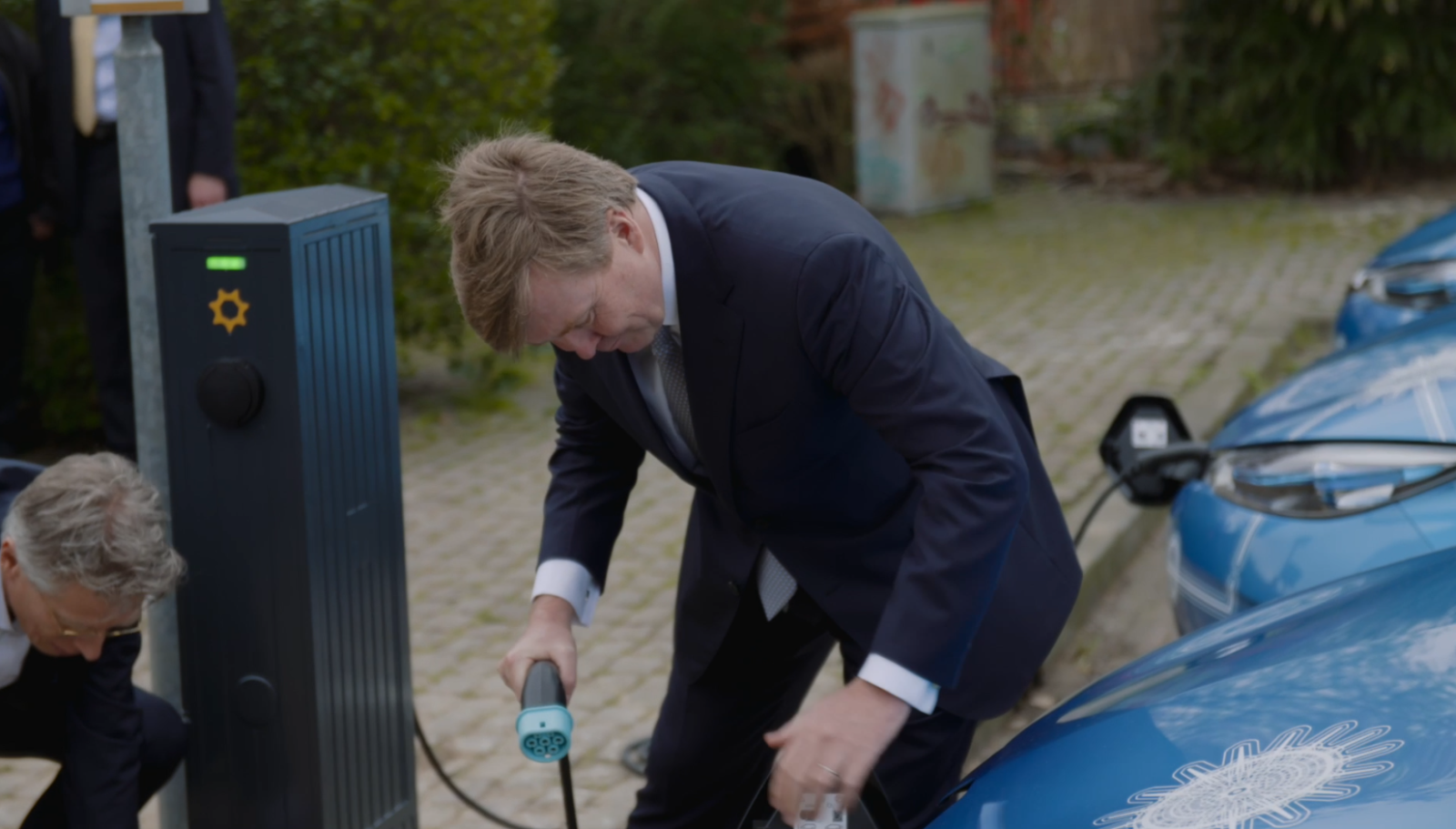News
Film: How Smart Solar Charging enables the energy transition
In the film Smart Solar Charging – Sustainable energy available anytime project partners explain how.
What sustainable energy system will there be in the future? Smart Solar Charging in the Dutch city of Utrecht is a unique solution for the energy transition through storage of sustainable energy in car batteries. Discover how with project partners in the film Smart Solar Charging – Sustainable energy available anytime.
> Watch the film (English subtitles available)
Innovative technique accessible for all
Smart Solar Charging (SSC) helps Utrecht to become the world’s first city balancing its energy needs with the bidirectional charging technique. The broadly applicable technique enables smart charging of electric cars with solar power, storing solar energy peaks in car batteries and using the energy when the energy demand is high. In this way, electric cars become part of smart power grids and increase their energetic and economic return.
From October 2019, Utrecht Science Park is the world’s first campus that offers bidirectional charging according to the new open standard ISO 15118 with thirty-two brand-new Smart Solar Charging stations. This open standard makes sure that the system of electric car sharing and charging stations is available to everyone in the automobile sector.
With living labs towards large-scale transition
By learning from practice, Smart Solar Charging is prepared for large-scale transition to the use of renewable energy sources. The energy system with electric cars as ‘batteries on wheels’ is further developed within five living labs in the Utrecht region. One of the living labs is Utrecht Science Park, where education, housing, work and health care are combined in an unique setting. Researchers and entrepreneurs work together to optimise the innovative system in the areas of energy performance, user behavior and value models.
Meet the people of this unique collaboration. Entrepreneur Robin Berg, professor Wilfried van Sark, project manager Michiel Scherrenburg, researcher Tom Wolvers and developer Matthijs Kok reflect on how living labs are required for the energy transition.

